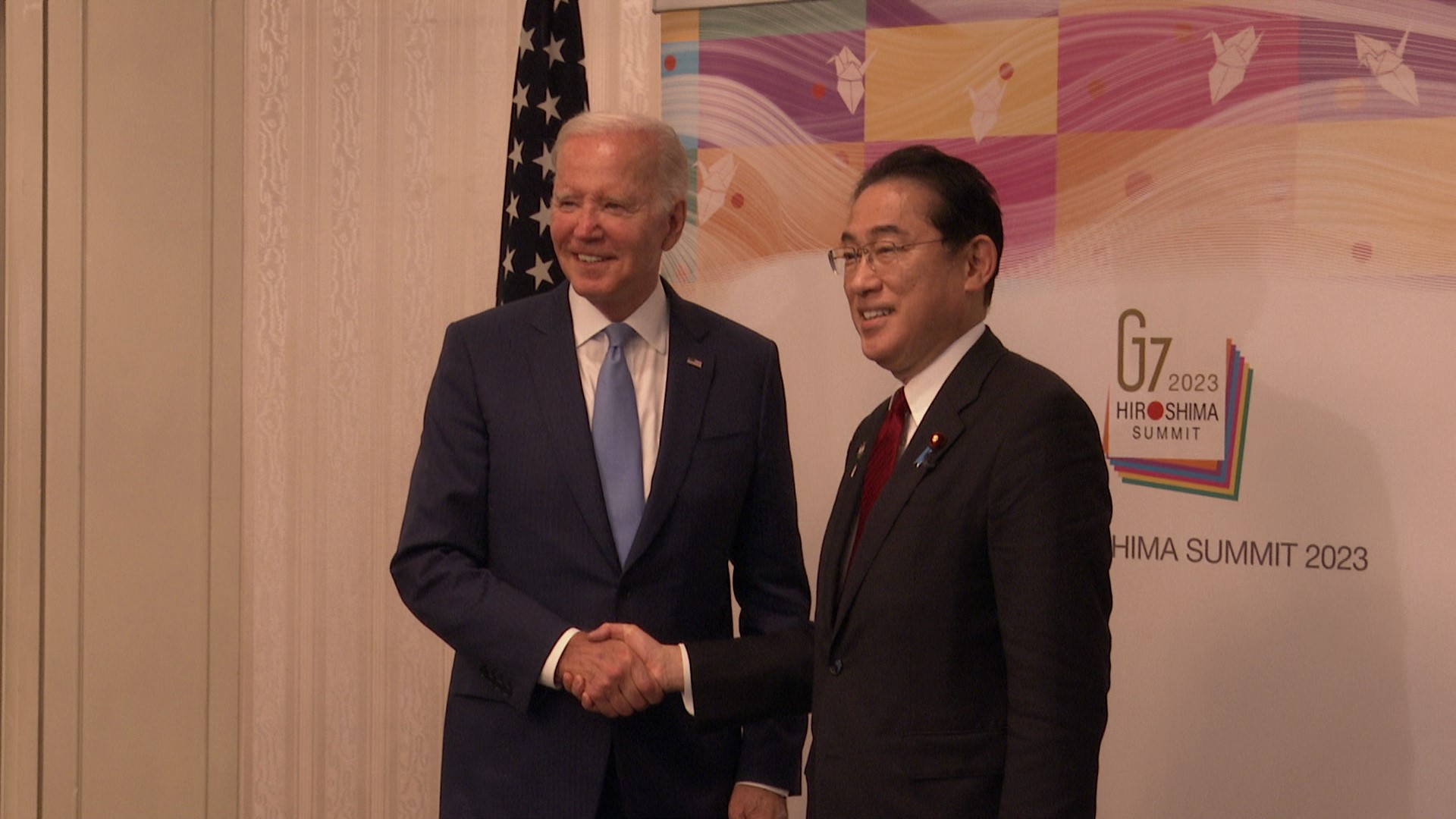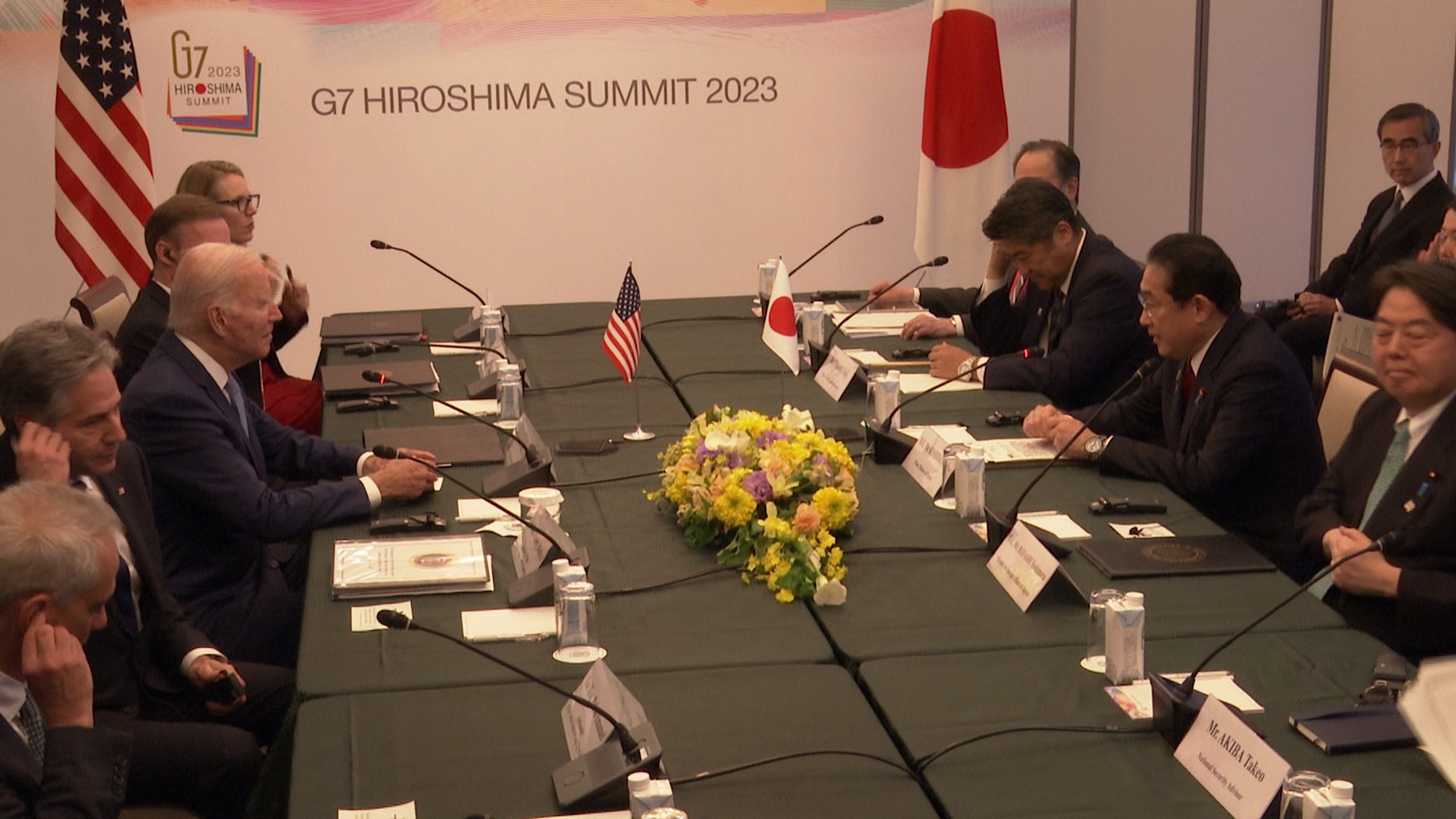Japan-U.S. Summit Meeting (Summary)
[Provisional translation]
On May 18, commencing at 6:00 p.m. for approximately 70 minutes, Mr. KISHIDA Fumio, Prime Minister of Japan, held a Japan-U.S. Summit Meeting with the Honorable Joseph R. Biden, Jr., President of the United States of America, who is visiting Japan to attend the G7 Summit Meeting. The overview of the meeting is as follows.
- At the outset, Prime Minister Kishida expressed his pleasure to meet again with President Biden since his visit to Washington D.C. in January. Prime Minister Kishida also stated that the Japan-U.S. Alliance is the cornerstone of the peace and stability in the Indo-Pacific region, and that our multilayered cooperation is not limited to security and economy, but to all fields. In response, President Biden stated that Japan and the U.S share fundamental values, and that this Alliance is stronger than ever.
- Prime Minister Kishida stated that Japan is working closely with the Massachusetts Institute of Technology (MIT), one of the leading universities in the U.S., to conduct a feasibility study to establish a “Global Startup Campus” in central Tokyo (Meguro / Shibuya) in order to create an ecosystem of innovation and startup in the field of deep tech. The two leaders concurred that it is important for Japan and the U.S. to coordinate closely in the field of startup and innovation. The two leaders also welcomed the finalization of a Memorandum of Cooperation on education and technology.
- The two leaders exchanged their views on Japan-U.S. security cooperation, and concurred to continue to cooperate for further strengthening deterrence and response capabilities of the Japan-U.S. Alliance, based on the outcomes of the Japan-U.S. Security Consultative Committee (“2+2”) and the Japan-U.S. Summit Meeting in January. The two leaders reaffirmed the critical role that U.S. extended deterrence plays in ensuring the security of Japan as well as the peace and stability of the region, coupled with Japan's enhanced defense capabilities.
- President Biden reiterated the U.S. commitment to the defense of Japan under the Treaty of Mutual Cooperation and Security, backed by the full range of capabilities, including nuclear, and, in this context, the two leaders reaffirmed their intent to ensure full bilateral coordination throughout every phase of a developing situation. The two leaders commended the robust and in-depth consultations on U.S. extended deterrence at the latest Japan-U.S. “2+2” and Extended Deterrence Dialogue meetings, and reaffirmed the importance of further strengthening such consultations.
- The two leaders exchanged views on regional issues, on the basis of the recognition that any unilateral attempt to change the status quo by force in the Indo-Pacific region, especially in East Asia, must not be tolerated.
(1) The two leaders concurred on continuing to work closely together in addressing issues related to China. The two leaders also confirmed the importance of cooperating with China on shared challenges. Furthermore, the two leaders reiterated the importance of peace and stability across the Taiwan Strait and encouraged the peaceful resolution of cross-Strait issues.
(2) Prime Minister Kishida, touching upon his visit to the ROK earlier this month, expressed his intention to work on further advancement of Japan-ROK relations. In response, President Biden welcomed improvement in Japan-ROK relations. The two leaders concurred on continuing to work closely together between Japan and the U.S. as well as among Japan, the U.S., and the ROK toward the complete denuclearization of North Korea in accordance with the UN Security Council resolutions in strengthening regional deterrence, including security cooperation among Japan, the U.S., and the ROK, and on responses at the UN Security Council. Prime Minister Kishida also asked for continued understanding and cooperation of the U.S. for the immediate resolution of the abductions issue, and once again gained full support from President Biden.
(3) Regarding Russia’s aggression against Ukraine, the two leaders concurred on continuing severe sanctions against Russia and strong support for Ukraine in close coordination with the G7 and other like-minded countries.
(4) The two leaders confirmed the importance of engagement with and support for the so-called “Global South.”
- Looking toward the G7 Hiroshima Summit from the 19th, the two leaders concurred to coordinate closely to demonstrate to the world the G7’s unwavering solidarity in addressing the issues of the international society and the region.
- The two leaders shared the recognition that U.S. engagement in the economic order of the region is becoming increasingly important and had a discussion on the Indo-Pacific Economic Framework (IPEF). Prime Minister Kishida conveyed Japan’s views and efforts on the Comprehensive and Progressive Agreement for Trans-Pacific Partnership (CPTPP).
- The two leaders shared the importance of promoting and protecting critical technologies. The two leaders welcomed a planned signing of partnerships between Japanese and U.S. universities and companies in the area of quantum and semiconductor and concurred on expanding cooperation into the areas of biotechnology and the AI. Furthermore, the two leaders shared the importance of working together toward strengthening energy security. The two leaders also concurred on further materializing economic security cooperation through the Japan-U.S. Economic Policy Consultative Committee (the Economic “2+2”).

